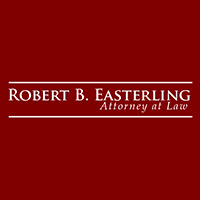Bruington Bankruptcy & Debt Lawyer, Virginia
Robert Bruce Easterling
✓ VERIFIEDBankruptcy & Debt, Bankruptcy, Estate, Trusts, Wills & Probate
Robert B. Easterling, Attorney at Law, in Fredericksburg, Virginia, offers legal services, specializing in bankruptcy, wills, trusts and estate planni... (more)
Michael B. Ballato
Corporate, Business Organization, Credit & Debt, Collection
Status: In Good Standing
FREE CONSULTATION
CONTACTRobert K. Caudle
Landlord-Tenant, Garnishment, Criminal, Collection, Wrongful Death
Status: In Good Standing
FREE CONSULTATION
CONTACTKaren S. Peterson
Real Estate, Divorce & Family Law, Bankruptcy & Debt, Accident & Injury
Status: In Good Standing
FREE CONSULTATION
CONTACTIrwin A. Heller
Estate Planning, Family Law, Business Organization, Bankruptcy
Status: In Good Standing
FREE CONSULTATION
CONTACTFREE CONSULTATION
CONTACTFREE CONSULTATION
CONTACT

